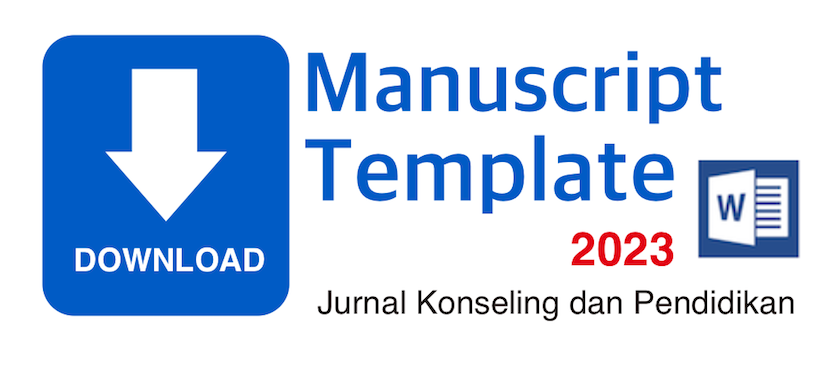The effect of a learning approach based on experience and prior knowledge on the mastery of the concept of static fluids
 ),
), (1) Muhammadiyah University of Makassar, Indonesia
 Corresponding Author
Corresponding Author
DOI : https://doi.org/10.29210/168700
Full Text:
 Language : en
Language : en
Abstract
Keywords
References
Astuti, I. A. D., Dasmo, D., Nurullaeli, N., & Rangka, I. B. (2018). The impact of pocket mobile learning to improve critical thinking skills in physics learning. Journal of Physics: Conference Series, 1114(1), 12030.
Bhakti, Y. B., Astuti, I. A. D., Okyranida, I. Y., Asih, D. A. S., Marhento, G., Leonard, L., & Yusro, A. C. (2020). Integrated STEM project based learning implementation to improve student science process skills. Journal of Physics: Conference Series, 1464(1), 12016.
Bolger, M. S., Kobiela, M., Weinberg, P. J., & Lehrer, R. (2012). Children’s mechanistic reasoning. Cognition and Instruction, 30(2), 170–206.
Hermansyah, H., Nurhairunnisah, N., Sentaya, I. M., Sulindra, I. G. M., Andriani, N., & Gunawan, G. (2021). The Effect of Physics Virtual Experiments on Mastery Concept Based on Students Learning Style. Journal of Physics: Conference Series, 1933(1), 12079.
Jamaludin, J., & Batlolona, J. R. (2021). Analysis of Students’ Conceptual Understanding of Physics on the Topic of Static Fluids. Jurnal Penelitian Pendidikan IPA, 7(SpecialIssue), 6–13.
Khan, T. A., & Zhao, X. (2021). Perceptions of students for a gamification approach: cities skylines as a pedagogical tool in urban planning education. Conference on E-Business, e-Services and e-Society, 763–773.
Krist, C., Schwarz, C. V, & Reiser, B. J. (2019). Identifying essential epistemic heuristics for guiding mechanistic reasoning in science learning. Journal of the Learning Sciences, 28(2), 160–205.
Kusairi, S., Alfad, H., & Zulaikah, S. (2017). Development of web-based intelligent tutoring (iTutor) to help students learn fluid statics. Journal of Turkish Science Education, 14(2), 1–11.
Loverude, M. E., Kautz, C. H., & Heron, P. R. L. (2003). Helping students develop an understanding of Archimedes’ principle. I. Research on student understanding. American Journal of Physics, 71(11), 1178–1187.
Mahmudovna, R. D. (2021). Introducing innovations in The Preschool Education System With Talented Children. Middle European Scientific Bulletin, 8.
Makhrus, M., Abtokhi, A., & Hidayatullah, Z. (2021). Learning Case Study in the Pandemic Covid-19: Learning Targets, Needs Analysis, Obstacles, and Solutions. International Conference on Engineering, Technology and Social Science (ICONETOS 2020), 788–793.
Meylasari, N. D., Sujadi, I., & Subanti, S. (2021). The profile of 8th graders’ level of statistical thinking: A case of analyzing and interpreting data. Journal of Physics: Conference Series, 1796(1), 12052.
Michelini, M., & Stefanel, A. (2019). Innovation in physics teaching/learning for the formative success in introductory physics for bio area degrees: the case of fluids. In Upgrading Physics Education to Meet the Needs of Society (pp. 153–168). Springer.
Mirzaei, A., Webster, C. M., & Siuki, H. (2021). Exploring brand purpose dimensions for non-profit organizations. Journal of Brand Management, 28(2), 186–198.
Palau, R., Fuentes, M., Mogas, J., & Cebrián, G. (2021). Analysis of the implementation of teaching and learning processes at Catalan schools during the Covid-19 lockdown. Technology, Pedagogy and Education, 30(1), 183–199.
Putra, P. D. A., & Iqbal, M. (2014). Implementation of digital comic to improve creative thinking ability in integrated science study. Interaction, 4, 3.
Qhobela, M., & Moru, E. K. (2020). Understanding the Use of Classroom Talk by Newly Trained Physics Teachers in Lesotho. African Journal of Research in Mathematics, Science and Technology Education, 24(1), 81–91.
Renatovna, A. G., & Renatovna, A. S. (2021). Pedagogical and psychological conditions of preparing students for social relations on the basis of the development of critical thinking. Psychology and Education Journal, 58(2), 4889–4902.
Rozenblatt-Rosen, O., Shin, J. W., Rood, J. E., Hupalowska, A., Regev, A., & Heyn, H. (2021). Building a high-quality human cell atlas. Nature Biotechnology, 39(2), 149–153.
Shoiynbayeva, G. T., Shokanov, A. K., Sydykova, Z. K., Sugirbekova, A. K., & Kurbanbekov, B. A. (2021). Methodological foundations of teaching nanotechnology when training future physics teachers. Thinking Skills and Creativity, 42, 100970.
Sundari, P. D., Dewi, W. S., Saputra, D., & Hidayat, R. (2021). The Improvement of Physics Teachers’ Competence in Developing an Interactive Recitation Programs to Remediate Students’ Misconception. Indonesian Journal of Science and Mathematics Education, 4(3), 242–252.
Supena, I., Darmuki, A., & Hariyadi, A. (2021). The Influence of 4C (Constructive, Critical, Creativity, Collaborative) Learning Model on Students’ Learning Outcomes. International Journal of Instruction, 14(3), 873–892.
Toh, P. C., & Kaur, B. (2016). Developing 21st Century Competencies In The Mathematics Classroom: Yearbook 2016, Association Of Mathematics Educators. World Scientific.
Vakaliuk, T. A., Spirin, O. M., Lobanchykova, N. M., Martseva, L. A., Novitska, I. V, & Kontsedailo, V. V. (2021). Features of distance learning of cloud technologies for the organization educational process in quarantine. Journal of Physics: Conference Series, 1840(1), 12051.
Yadaeni, A., Kusairi, S., & Parno, P. (2018). Penguasaan konsep dan keterampilan proses sains siswa kelas XII pada materi fluida statis. Jurnal Pendidikan: Teori, Penelitian, Dan Pengembangan, 3(3), 357–364.
Zacharia, Z. C., & De Jong, T. (2014). The effects on students’ conceptual understanding of electric circuits of introducing virtual manipulatives within a physical manipulatives-oriented curriculum. Cognition and Instruction, 32(2), 101–158.
 Article Metrics
Article Metrics
 Abstract Views : 404 times
Abstract Views : 404 times
 PDF Downloaded : 59 times
PDF Downloaded : 59 times
Refbacks
- There are currently no refbacks.

This work is licensed under a Creative Commons Attribution 4.0 International License.



